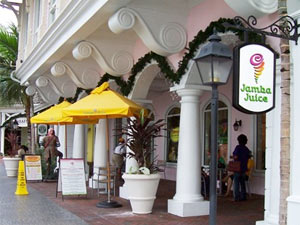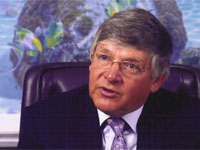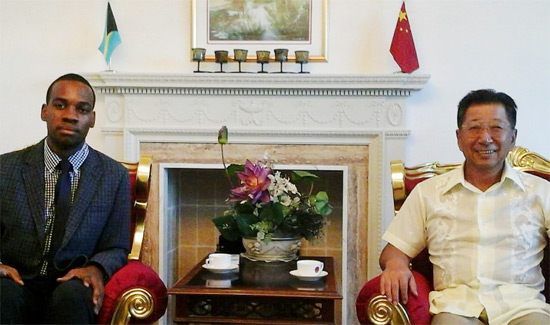
Franchises play by the rules. They’re temples of conformity. They deliver the same sanitized experience regardless of location, exalting a corporate “concept” over the individual liberty of the store manager.
Enter the pioneer franchisee. She recalls our defiant origins in the American wilderness. She stands up to the corporate empire and declares her independence, transforming her store into a beacon of personal expression. At least she does in theory. In the franchise world, genuine rogues are a rare species.
Still, while straying too far from the corporate template defeats the purpose of franchising, wise companies recognize the need for a bit of local flair. Ultimate Book of Franchises author Rievas Levonsky allows that some popular chain stores could be trending toward personalization. A seaside Dunkin’ Donuts, for instance, might embrace nautically-themed decorations. Burger Kings outside of the country have added beetroot (the United Kingdom) and teriyaki (Japan) to their Whoppers. In 2010, Tom and Candace Spiel of Riverside, Calif., opened a “green” McDonalds with photovoltaic solar panels and low-flow plumbing, hoping to honor what Candace called “the green focus of … California’s first emerald city.”
None of these tweaks are exactly revolutionary, however. Where instead are car dealerships that dabble in baked goods? The Wendy’s that will do your dry-cleaning on the side? The smoothie chain store that decided to sell turkey sandwiches for breakfast?
This last example is real. In 2003, Jamba Juice established a business arm in the Bahamas. Don Spina, the director of operations for Swankclub Limited, an umbrella company that owns franchises of Johnny Rockets, Quiznos, Tony Roma’s (before it closed), and Jamba Juice, moved from New York to serve as on-site manager. It wasn’t long before Spina noticed a problem: His smoothie shop sat across the street from a Starbucks and down the block from a Haagen Dazs. The tourists he was counting on were opting for ice cream and Frappuccinos over fruit shakes, and the store was losing money.
In this case, says Spina, the Jamba Juice “concept” proved a poor fit for the location. Luxury health food seduced customers in California, where the brand originated, but most Bahamians weren’t interested in trendy $5 fruit drinks. Meanwhile, the tourists were largely families looking to indulge their kids’ sweet tooth—and perhaps get a burst of caffeine in the bargain. Spina’s smoothie shop didn’t stand a chance.
As a Jamba Juice franchisee, Spina was well aware of the contract binding him to a particular frozen product. But he chose to take a risk.
Spina drew up a proposal for a Jamba Juice food menu and contacted the corporate nucleus. Cleaving to the brand’s image of health and wholesomeness, he suggested for breakfast whole-wheat English muffins topped with egg whites, low-fat cheese, and ham or turkey. Lunch possibilities included a grilled chicken sandwich on ciabatta bread and a panoply of Caesar and vegetarian salads.
Jamba Inc. was hesitant—any deviation from the Ur-store might dilute the overarching “concept,” harming its other franchises. But it recognized the alternative was shuttering the Bahamas shop. (In fact, one Jamba Juice location had at that point already adopted a food menu. This was in Hawaii, where the smoothie franchise faced similarly adverse demographics.) Spina says the company sent over a group of inspectors to taste his handiwork.
After a flurry of negotiations over calorie counts, Spina got the green light to unveil his food line. That year, 2003, his franchise was one of only six Jamba stores to gross over $2 million, he says. Spina estimates that 25 to 30 percent of his sales came from the food menu. “We sold a truckload of turkey for breakfast,” he marvels, “Who knew?”
The rest of the story is as bittersweet as a smoothie blended from half-ripe mangoes. Five years after Spina rolled out his new products, the recession rolled in, decimating tourism in the Bahamas. He closed his doors in January 2011. But his concept had caught on. Jamba Inc. launched its own food line in June 2009. Today, Jambas around the country offer steel-cut oatmeal, smokehouse chicken flatbread, and fruit and yogurt parfaits.
After Starbucks purchased the juice company Evolution French in November 2010—and announced plans to open juice bars along the West Coast later this year—Jamba’s move away from smoothie-centrism appeared prescient. “We kind of joke about Jamba versus Goliath,” says Jamba chief executive James White. “But rumors of our demise have been greatly exaggerated.”
Spina, meanwhile, has found other ways to spin franchise gold. His Bahamas-based Johnny Rockets was recently named the highest-grossing international restaurant in the chain. “The three most important tenets of franchising,” he tells me, “are service, service, and service. The four most important are service, service, service, and food.” Spina also praises corporate managers who check in frequently on their franchisees. “I like to do my thing,” he explains, “but we all need our asses kicked sometimes.”
For the truly entrepreneurial spirits, though, there may be a limit. Spina confides that he’s collaborating with a friend to launch his own coffee franchise in the States—“a cross between Panera, Starbucks, and Dunkin’ Donuts.” O, pioneers!



